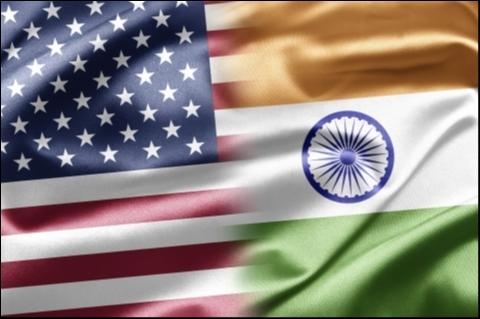TMTPost -- Indian Prime Minister Narendra Modi on Tuesday was said to reject direct conversation with U.S. President Donald Trump recently as Washington is moving forward its punitive tariff agenda.

Credit:U.S. Embassy & Consulates in India
Trump over the past weeks has made four attempts to speak with Modi on the phone, but the latter refused to take these calls, the Frankfurter Allegemeine Zeitung citing sources on Tuesday. The German newspaper pointed out the phone calls were made after Trump stunned India by levying extra 25% tariffs and calling it a “dead economy”.
The newspaper believed that Modi’s declining Trump’s phone calls are signs indicating the prime minister felt insulted and how he was irritated by what Trump had done. Modi’s reponse also illustrated New Delhi will not yield to U.S. pressure and wants to manage its relationship with Washington and Beijing in its own way. Jananese newspaper Nikkei Asia echoed the report about Modi’s avoiding Trump’s calls, observing that move heightening the president’s frustration.
Trump on August 6 signed an executive order imposing an additional 25% tariff on imports from India over Russian oil purchase. The new tariffs will enter into effect 21 days after announcement of the order, which will effectively raise tariffs imposed by the U.S. on Indian goods to 50% this month. The 50% tariff rate is well above the 10% baseline tariffs that goods from most U.S. trading partners including India have charged since April. India became one of the countries facing the highest U.S. tariffs this month.
The Ministry of External Affairs (MEA) of India responded to Trump's threat with a statement reiterating that the targeting of India is"unfair, unjustified and unreasonable." “We have already made clear our position on these issues, including the fact that our imports are based on market factors and done with the overall objective of ensuring the energy security of 1.4 billion people of India,” the ministry said.
The MEA said It is therefore extremely unfortunate that the US should choose to impose additional tariffs on India for actions that several other countries are also taking in their own national interest. It repeated New Delhi’s pledge to “take all actions necessary to protect its national interests.”
While U.S. officials didn’t confirm the reports about Modi, an Indian diplomat said in a background conversation earlier this month that it is not Modi’s style to negotiate details over the phone. It is likely Modi ducked the call to be avoid the outcome of the conversation being misrepresented, another Indian source said.

The reports about Modi’s pouring cold water on Trump’s phone call communications came a day after the Trump administration reaffirmed its plan to levy new tariffs on India. According to a draft notice published Monday, the Department of Homeland Security said that the increased levies would hit Indian products “that are entered for consumption, or withdrawn from warehouse for consumption, on or after 12:01 a.m. eastern daylight time on August 27, 2025.”
Modi these days has showcased the Indian government would embrace new pressure from U.S. levies. He on Monday vowed not to sacrifice the interests of small businessmen and farmers in a world that “every is busy doing politics based on economic interests. “
“For Modi, interests of farmers, cattle rearers and small-scale industries are paramount. The pressure on us may increase, but we will bear it all,”Modi said during a gathering in Ahmedabad. “My government will never let any harm come to the small entrepreneurs, farmers, and animal keepers. No matter how much pressure comes, we will keep increasing our strength to withstand,” said the prime minister. “Today, the Ahmedabad Bharat Abhiyan is getting a lot of energy from Gujarat and behind this are two decades of hard work.”
更多精彩内容,关注钛媒体微信号(ID:taimeiti),或者下载钛媒体App

